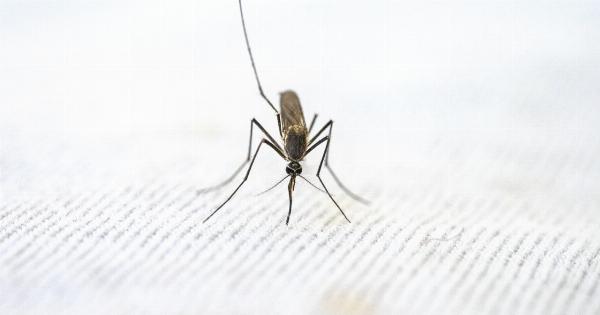The Middle East Respiratory Syndrome (MERS) is a viral respiratory illness that was first reported in Saudi Arabia in 2012. Since then, it has spread to other countries, causing significant concern among global health organizations.
However, recently, there have been allegations of false MERS case calculations in Saudi Arabia, which have raised alarm bells regarding the accuracy of the reported numbers.
1. Background of MERS
MERS is caused by a coronavirus called MERS-CoV. This virus is believed to have originated in camels and can be transmitted to humans through close contact. It has a high fatality rate, with approximately 35% of reported cases resulting in death.
2. Saudi Arabia’s Role in Combating MERS
Saudi Arabia has been at the forefront of efforts to combat MERS. The country has implemented various measures such as increased surveillance, public awareness campaigns, and improved healthcare infrastructure to control the spread of the virus.
These efforts have been praised by international health authorities.
3. Allegations of False MERS Case Calculations
Recently, however, there have been allegations that Saudi Arabia has been misreporting the number of MERS cases.
According to some whistleblowers, the government has been manipulating the case numbers to downplay the severity of the situation and maintain its reputation as a safe destination for tourists and investors.
The allegations suggest that the authorities are intentionally misclassifying MERS cases and attributing deaths to other causes to underestimate the true impact of the virus.
This has raised concerns about the accuracy of the reported statistics and the effectiveness of the measures implemented by the Saudi government.
4. Possible Motives behind False Reporting
There are several potential motives behind the alleged false reporting of MERS cases in Saudi Arabia. One possibility is the desire to protect the country’s economy, which heavily relies on tourism and foreign investment.
A significant outbreak of MERS could deter visitors and investors, leading to economic repercussions.
Another motive could be the government’s fear of public panic. By downplaying the severity of the situation, the authorities may believe that they can prevent widespread fear and maintain social stability.
However, this approach raises ethical concerns as it compromises the public’s right to accurate information about potential health risks.
5. Implications of False Reporting
The consequences of false MERS case calculations can be significant. Firstly, the misrepresentation of data undermines trust in public health systems and institutions.
It erodes the credibility of the government and raises doubts about its ability to handle public health emergencies.
Furthermore, false reporting can hinder international efforts to combat the disease. Accurate data is crucial for global health organizations to allocate resources effectively and develop appropriate strategies.
If the reported numbers are unreliable, it can hinder the international response to the virus, leaving affected countries more vulnerable.
6. Impacts on Public Health
Inaccurate reporting of MERS cases can have serious implications for public health. If the true extent of the outbreak is not accurately reflected in the reported numbers, it can lead to a lack of preparedness and response measures.
Healthcare systems may be inadequately equipped to handle the actual number of cases, leading to increased mortality rates.
Additionally, false reporting can contribute to the spread of misinformation.
People may underestimate the risks associated with MERS, leading to a disregard for preventive measures such as wearing masks, practicing good hygiene, and avoiding contact with camels.
7. Need for Transparency and Accountability
To address the allegations of false MERS case calculations, it is essential for the Saudi Arabian government to demonstrate transparency and accountability.
Independent investigations should be conducted to verify the accuracy of the reported numbers and identify any discrepancies.
International health organizations, such as the World Health Organization (WHO), should also play an active role in ensuring the integrity of the reported data.
Collaboration between Saudi Arabia and international experts can help establish trust and credibility in the reported MERS cases.
8. Rebuilding Trust and Ensuring Accurate Reporting
To rebuild trust in the reporting of MERS cases, the Saudi Arabian government needs to prioritize accurate and transparent data. This includes regular and timely updates, as well as clear explanations of the methodology used for case calculations.
In addition, public awareness campaigns should be intensified to provide accurate information about the risks associated with MERS.
People need to be educated about the signs and symptoms of the virus, as well as the preventive measures that can be taken to reduce the risk of transmission.
9. International Collaboration in MERS Prevention
MERS does not respect national borders, and international collaboration is crucial in preventing its spread. Countries should share information and best practices to strengthen their preparedness and response efforts.
Lessons learned from previous outbreaks, such as the SARS epidemic, can be invaluable in developing effective strategies.
International health organizations should also provide support and resources to countries affected by MERS. This can include technical assistance, training programs, and financial aid to strengthen healthcare systems and surveillance capabilities.
10. Conclusion
The allegations of false MERS case calculations in Saudi Arabia have raised concerns about the accuracy of reported numbers and the government’s commitment to transparency.
Accurate data is crucial for effective response measures and international collaboration in combating the virus.
It is imperative for the Saudi Arabian government to address these allegations transparently, allowing independent investigations into the reported data.
Rebuilding trust and ensuring accurate reporting is crucial for the successful management of MERS and protecting public health.































